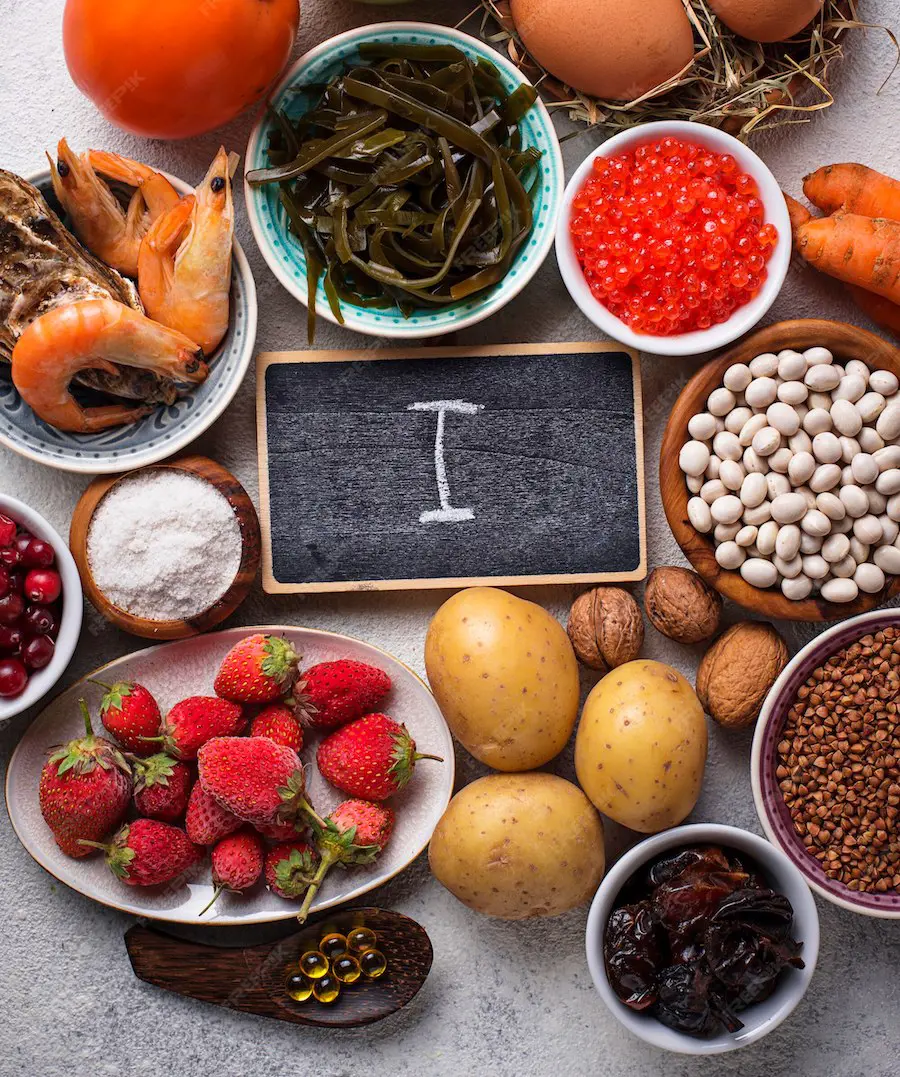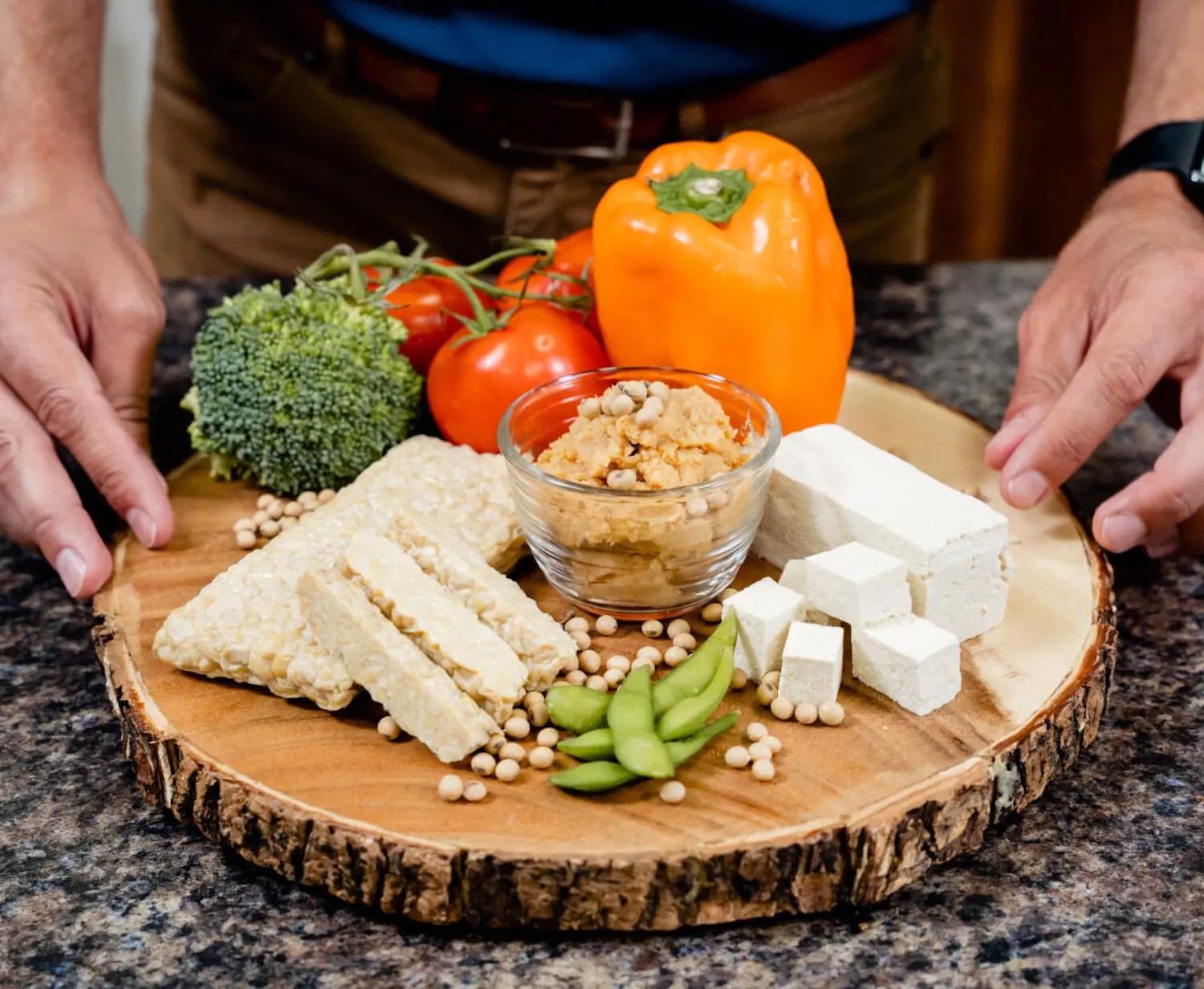Watermelon Calories And 20 Reasons To Fit It In Your Diet
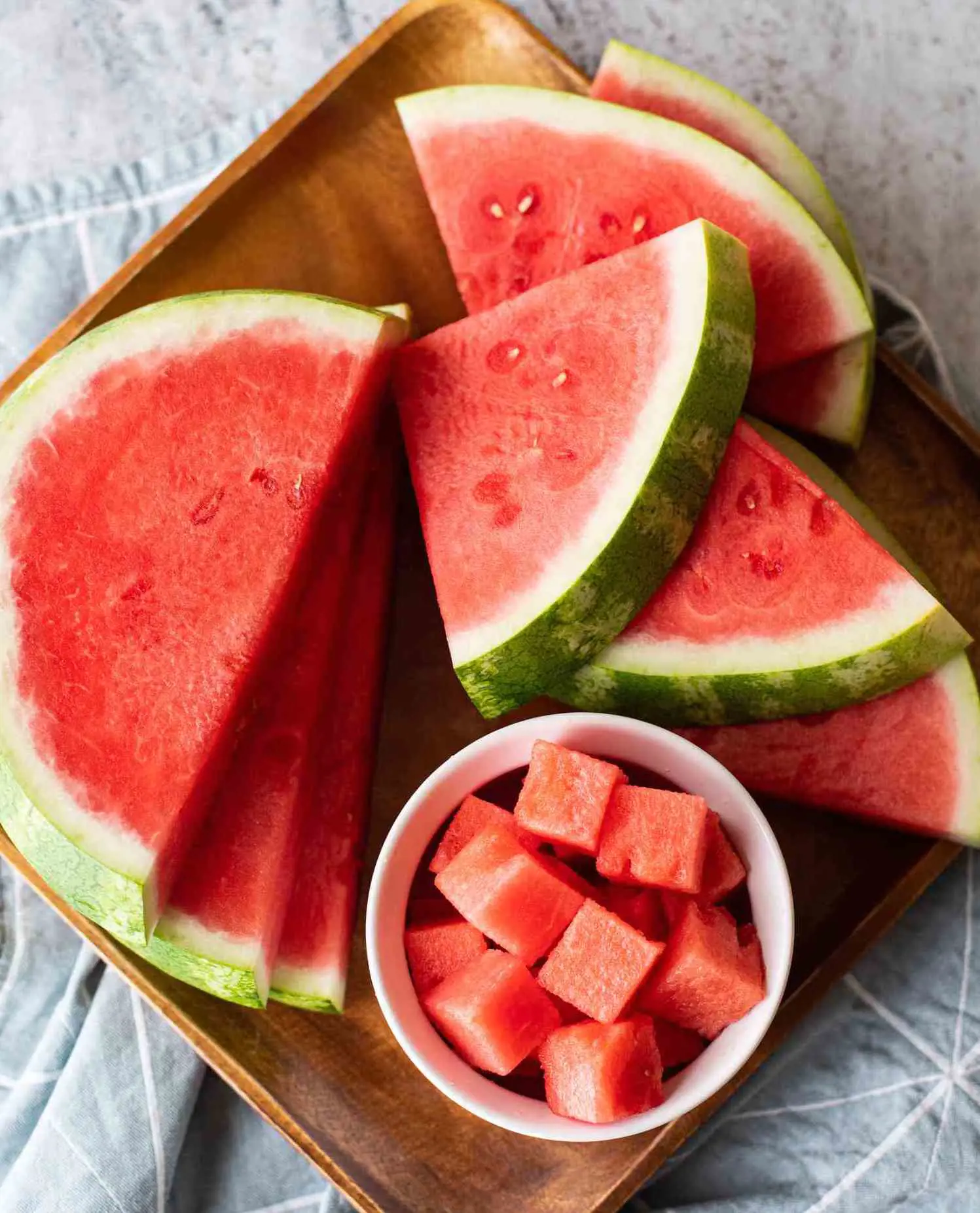
Watermelon is a delicious and refreshing fruit that is primarily enjoyed during the summer season. With its vibrant red flesh and sweet, juicy taste, watermelon is a popular choice for picnics, barbecues, and outdoor parties.
Originating from Africa, melon is now cultivated in many countries around the world. It is a member of the Cucurbitaceae family, which also includes cucumbers, pumpkins, and squash. Its high water content, around 92%, makes it one of the most hydrating fruits. In addition to the water content, watermelon also has several other health benefits.
Watermelon Nutritional Composition
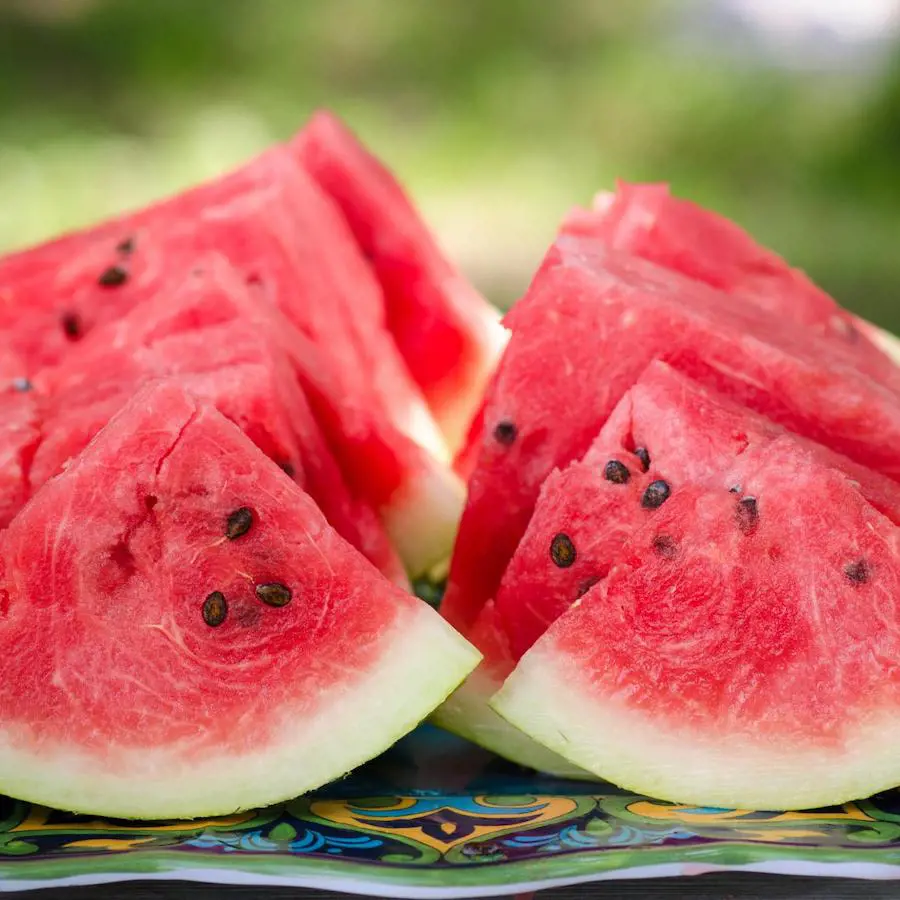
Watermelon is high in water but low in calories. This is one of the primary reasons behind its universal consumption. In terms of nutrition, 100 grams of watermelon has the following nutritional composition:
- Calories: 30
- Carbohydrates: 8 grams
- Sugar: 6 grams
- Fiber: 0.6 grams
- Protein: 0.6 grams
- Fat: 0.2 grams
- Vitamin C: 8.1 mg
- Vitamin A: 569 IU
- Potassium: 112 mg
- Magnesium: 10 mg
The fruit is also rich in antioxidants such as lycopene, which gives it its vibrant red color. Lycopene has been linked to numerous health benefits, including reducing the risk of heart disease and certain types of cancer. It also contains citrulline, an amino acid that has been shown to have potential benefits for cardiovascular health and exercise performance.
Overall, watermelon is a healthy and nutritious fruit that can be enjoyed as part of a balanced diet. Here are 20 health benefits of watermelon that make it a healthy summer indulgence:
1. Hydration
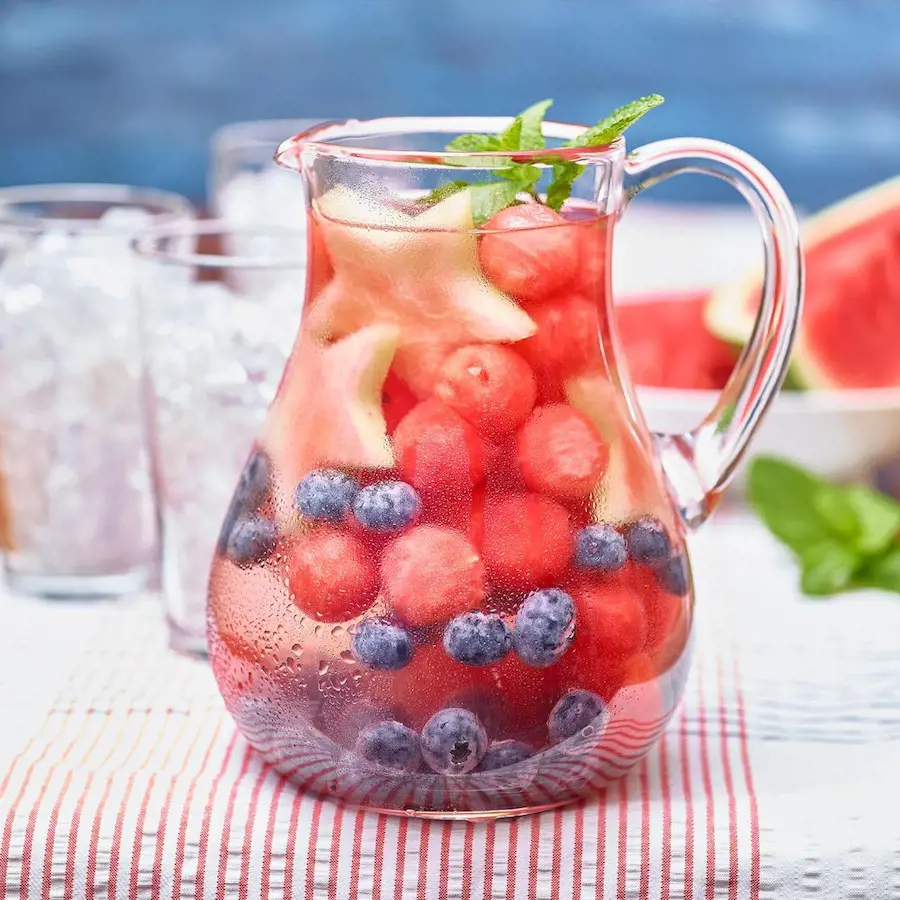
With about 92% water, this juicy fruit is a refreshing and satisfying way to stay hydrated during hot weather or after a workout. It is one of the best fruits in terms of water content.
The water in watermelon allows it to be a great alternative to sugary drinks or artificial sports drinks, particularly during the hot summer months. It helps replenish the body's fluids and electrolytes. Staying properly hydrated is crucial for regulating body temperature, aiding digestion, transporting nutrients, and lubricating joints.
2. Weight management

This juicy fruit is low in calories and fat, making it an excellent choice for those looking to shed some pounds. Similarly, staying hydrated can prevent overeating and unnecessary snacking. It is often consumed as a snack during or after a workout for this very reason.
Additionally, watermelon contains dietary fiber, which adds bulk to your diet without adding extra calories. This fiber aids in digestion and prevents constipation, ensuring that your body efficiently eliminates waste.
3. Heart health
Watermelon contains a high concentration of lycopene, a powerful antioxidant known for its heart-protective properties. Lycopene helps to reduce the risk of heart disease by preventing the oxidation of LDL cholesterol, thus preventing the formation of plaque in the arteries.
Furthermore, watermelon is an excellent source of citrulline, an amino acid that helps to promote the production of nitric oxide in the body. Nitric oxide plays a crucial role in relaxing and dilating blood vessels, improving blood flow, and reducing blood pressure. By reducing hypertension, watermelon reduces the strain on the heart and lowers the risk of heart attacks and strokes.
4. Anti-inflammatory properties

One key component of watermelon's anti-inflammatory benefits is its high concentration of antioxidants, particularly lycopene. Like all antioxidants, lycopene helps neutralize free radicals in our bloodstream. This significantly improves uncontrolled inflammation in the body.
Additionally, watermelon is rich in vitamins A and C, which possess anti-inflammatory properties. Vitamin A helps regulate the immune system and reduces inflammation, while vitamin C acts as a potent antioxidant that fights inflammation and strengthens the immune system.
5. Eye health
The beta-carotene found in watermelon is converted into vitamin A in the body. Vitamin A plays a vital role in maintaining healthy eyesight. It helps to protect the cornea, the clear outer layer of the eye, and ensures good vision.
Adequate vitamin A intake can also reduce the risk of developing age-related macular degeneration (AMD) and cataracts, two common eye diseases. Furthermore, hydration is crucial for maintaining overall eye health, as dehydration can lead to dry eyes, causing discomfort and blurred vision.
6. Digestive health

In addition to helping in weight management, watermelon can also be a great addition to your digestive health. It contains a substantial amount of fiber, both soluble and insoluble. Fiber is essential for promoting regular bowel movements and preventing constipation.
It is also a good source of the enzyme called bromelain, which assists in breaking down proteins and improving digestion. Adequate weight management can further support digestive health by preventing issues such as acid reflux and heartburn.
7. Skin health

Skin health is dependent on a lot of factors like hydration and other essential nutrients. Vitamin E is often considered a beauty vitamin due to its positive effects on skin health. Watermelon is an essential source of vitamin E, vitamin A and vitamin C.
Similarly, since watermelon has an exceptional water content, it is often added to face masks and skin products. The antioxidants found in this fruit aid in collagen production. Collagen helps maintain skin elasticity and firmness.
8. Muscle soreness relief

The amino acid citrulline found in watermelons aids in the removal of lactic acid from muscles. This, in turn, enhances blood flow and reduces muscle soreness. This vibrant fruit is also packed with other essential nutrients and compounds that contribute to its muscle-soothing properties.
The electrolytes, such as potassium and magnesium, are vital for proper muscle function and recovery. These electrolytes help restore the electrolyte balance in the body, which can become depleted during intense exercise or physical activity.
9. Bone health

Watermelon can prevent osteoporosis, the process of degradation of bone cells. The antioxidants found in the fruits have protective action against cell damage. This also prevents any severe bone-related diseases.
In addition to helping with muscle soreness, the fruit also have positive effects on bone and joint relaxation.
10. Blood pressure regulation

Watermelon is a low glycemic food, meaning it releases energy slowly so as not to cause a rapid spike in blood sugar levels. Besides, the high water content also helps maintain the blood volume. It ensures efficient blood circulation and optimal heart function.
Even though it has several benefits related to blood pressure, it is important to note that watermelon should not be used as a substitute for prescribed blood pressure medicines.
11. Immune system boost
Regular consumption of watermelon helps strengthen the immune system, making it more efficient in protecting the body against various illnesses. This is the result of various nutrients found in the fruit. From antioxidants to minerals like potassium, all of these help in an immunity boost.
The fruit also contains vitamin B6, which is essential for the production of antibodies.
12. Anti-Cancer
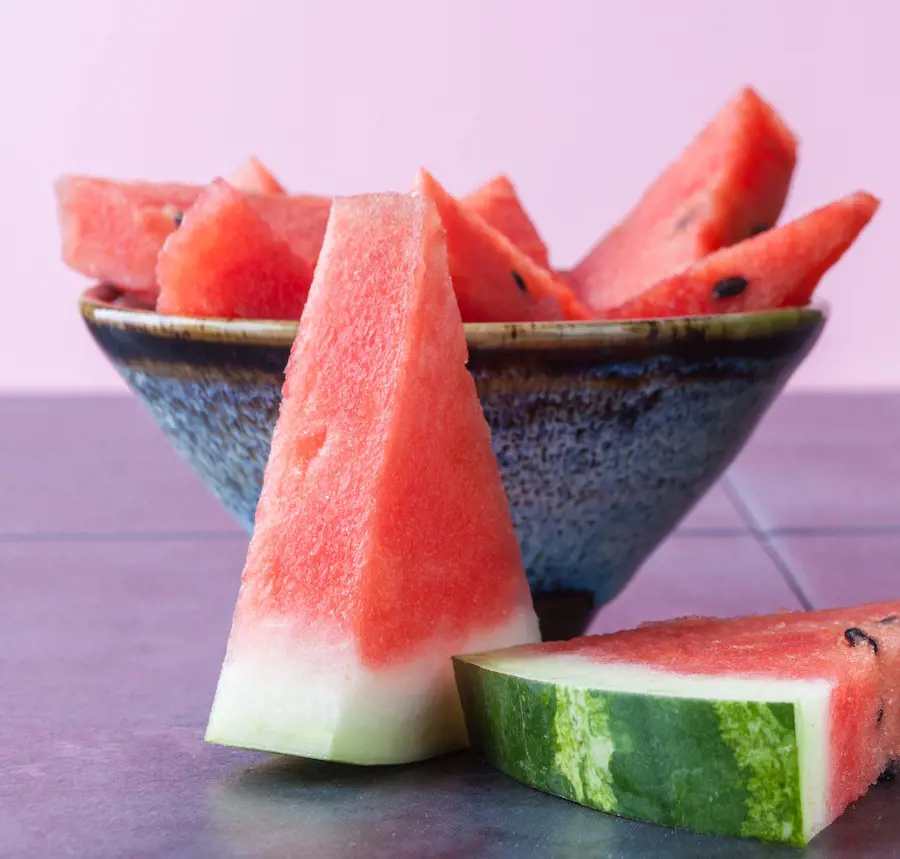
Studies have indicated that the lycopene found in watermelon has a significant effect on the growth of cancer cells. By neutralizing harmful free radicals in the body, lycopene helps prevent DNA damage and reduces the risk of cancerous cell formation.
Prostrate cancer and cervical cancer are two of the common examples in which the compound showed an important activity. Further studies are required to demonstrate its effects against other cancer cells.
13. Essential nutrients
Watermelon is an important source of various nutrients. A single serving of watermelon provides about 15% of our DRA for vitamin C. Similarly, it also contains significant amounts of other nutrients like vitamin A and potassium.
Other compounds that are native to this fruit also have a protective function against several systems in the human body. The high fiber and low calories of the fruit make it a popular option for many individuals.
14. Workout booster

The refreshing taste and high water content of watermelon make it a fantastic workout booster. Since it is packed with essential nutrients, it can enhance exercise performance and aid in post-workout recovery.
The natural sugars found in watermelon also provide a quick energy boost and help sustain endurance during workouts. The low-calorie and high-fiber property of this fruit helps slow the release of energy over a period of time which also helps maintain a constant energy level.
15. Prevents asthma
Asthma is characterized by chronic airway inflammation, and consuming foods with anti-inflammatory properties can help alleviate symptoms and reduce the risk of asthma attacks.
Since watermelon has anti-inflammatory properties, it is a good choice of fruit for asthma-prone children and adults. The improved blood flow resulting from watermelon consumption also promotes blood flow and oxygen delivery to the lungs.
16. Pregnancy friendly

Unlike many other fruits and vegetables, watermelon is actually pregnancy-friendly. It can even help alleviate discomfort as it relaxes muscles and prevents soreness. Since it is mostly made of water, there is no concern regarding toxicity with this fruit.
This has also shown excellent activity against heartburn and morning sickness in several pregnant women.
17. Healthy gums

Watermelons are naturally sweet. Thus, they can help satisfy our sweet tooth. The natural sugars are less likely to cause tooth decay compared to other sugary snacks. Also, they are easy to bite into and chew, which doesn't affect the natural composition of teeth.
Unless served cold, watermelon can even be consumed by individuals with teeth sensitivity. Regular consumption of watermelon can help reduce the risk of gum diseases such as gingivitis.
18. Cooling comfort

This quintessential summer fruit brings a refreshing feeling like no other. Its juicy flesh, bursting with vibrant colors, is a perfect antidote to scorching heat. With every bite, the sweet and succulent taste instantly alleviates your thirst.
The high water content in watermelon, coupled with essential vitamins and minerals, helps to hydrate and rejuvenate your body. Its natural cooling properties make it an ideal treat to beat the heat. You can serve this in slices, as a chilled beverage, or blended into a refreshing sorbet.
19. Kidney care
Inadequate water consumption and dehydration can put pressure on the kidneys. Since the kidney is an important organ for flushing out toxins and waste products from our body, it is important to take care of these organs.
Watermelon keeps the kidneys well-hydrated and ensures their optimal functioning. Similarly, this potassium-rich fruit has an important role in maintaining a healthy balance of fluids in the body and regulating blood pressure.
20. Hair health

Watermelon is also beneficial for hair health. It is packed with essential nutrients that promote hair growth and improve its overall condition. Proper hydration helps in maintaining scalp health and preventing dryness.
Realizing the importance of watermelon in hair health, different watermelon-infused hair products have been introduced in the market. Regular consumption of watermelon can result in stronger, shinier, and healthier hair.
Recent posts
Healthy Eating
Healthy Eating
Delicious One-Pot Hamburger Soups the Whole Family Will Love
Hamburger soup is a warm and comforting option that might just be the perfect solution to the perennial question, "What's for dinner?" Whether faced with a cold, chilly day or simply seeking a quick and easy meal, this hearty soup is an excellent cho...
Healthy Eating
Easy To Make Daniel Fast Menu Ideas
The Daniel Fast is a Biblically inspired partial fast that essentially mirrors a vegan diet, excluding added sugars, refined carbs, caffeine, and alcohol. While it may seem restrictive, the inclusion of numerous flavorful, make-ahead dishes can signi...
Healthy Eating
20 Iodine Rich Foods To Include In Your Diet
Iodine is a trace mineral not made in our body and thus must be obtained via food or supplements. It is an important element that is required for the proper working of the thyroid glands. In the US, the daily iodine requirement is met via food or sup...
Healthy Eating
20 Foods High In Estrogen
Estrogen is a hormone primarily produced in the ovaries of females, although it is also present in smaller amounts in males. It plays a crucial role in the development and regulation of the female reproductive system and secondary sexual characterist...
Healthy Eating
How To Make Chicken Soup
A good chicken soup has multiple purposes. Whether you’re just craving some comfort food or feeling under the weather, chicken soup will swiftly come to your rescue. Luckily, it doesn’t take much to make a good chicken soup. All you need ...
Healthy Eating
Are Mashed Potatoes Healthy? Calories And Nutrition Facts
A timeless comfy food calls for mashed potatoes. It can be consumed at any time of the day. Mainly, eating this rich staple during breakfast or lunch serves as a great source of energy. And the whole day can go without feeling like eating anything. I...


